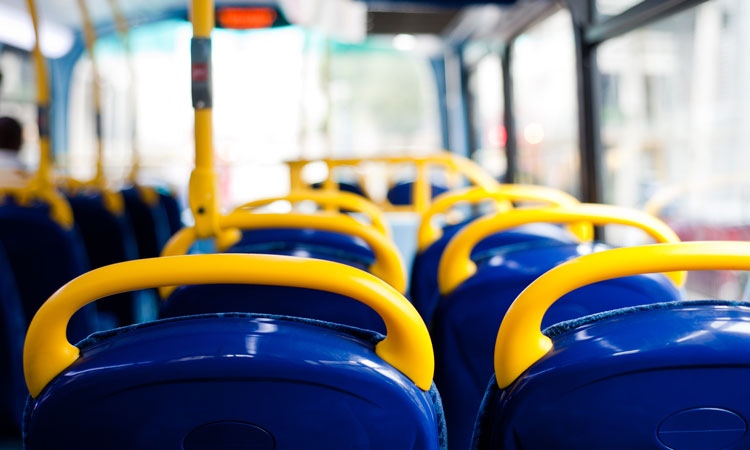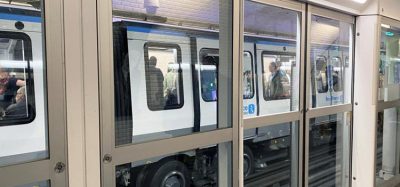Report stresses public transport need for continued COVID-19 financial support
- Like
- Digg
- Del
- Tumblr
- VKontakte
- Buffer
- Love This
- Odnoklassniki
- Meneame
- Blogger
- Amazon
- Yahoo Mail
- Gmail
- AOL
- Newsvine
- HackerNews
- Evernote
- MySpace
- Mail.ru
- Viadeo
- Line
- Comments
- Yummly
- SMS
- Viber
- Telegram
- Subscribe
- Skype
- Facebook Messenger
- Kakao
- LiveJournal
- Yammer
- Edgar
- Fintel
- Mix
- Instapaper
- Copy Link
Posted: 29 September 2020 | Intelligent Transport | No comments yet
Without continued financial backing from the UK Government, the paper suggests there is a real potential for ‘rapid and deep cuts’ to bus services and temporary closure of light rail systems.


A new report has highlighted the risk to local public transport services, should they not receive continued COVID-19 financial support from the government.
Should the aid be cut prematurely, the paper suggests likely impacts will be:
- a minimum reduction in bus services of between 30% and 40%
- pressure to increase public transport fares, which would also have a negative impact on passenger numbers
- increasing pressure on local transport authorities to step in and procure socially necessary bus services (but with increasingly limited budgets to act)
- temporary closures of tram and light rail systems.
The report has been produced by transport consultancy Steer for the Urban Transport Group as part of the group’s submission to the Comprehensive Spending Review and in regard to the current funding deals for urban public transport, most of which are due to finish by the end of October.
It highlights the importance of Government support thus far, which allowed public transport to continue during the national lockdown as the UK battled COVID-19 (enabling key workers to travel to and from work) and to provide a more comprehensive service at lower socially distanced vehicle capacity following the end of the lockdown.
The report finds that public transport demand is likely to be well below pre-COVID levels for some time, something that will come as little of a surprise to many as the UK enters its second wave of the coronavirus pandemic. It goes on to suggest future funding should be developed to cope with a best case scenario of patronage returning to 85% of pre-COVID levels by mid-2021, and a worst case scenario of patronage returning to 65% of pre-COVID levels by the end of 2021.
‘Local public transport faces a situation where its core demand has been disproportionately affected by the pandemic-induced recession, while at the same time provision of local public transport is particularly important if people are to be able to return to employment. Maintaining local public transport supply is therefore integral to the post-pandemic recovery.’
The Urban Transport Group recommends Government should:
- Move from its current short term ‘patch and mend’ approach to closing the immediate COVID-19 funding gap for public transport. Instead it should bring tram and bus more in line with the longer term funding support in place for national rail services, as well as allowing transport authorities to adopt the same contractual basis for funding for bus services that national Government now exercises over national rail services; and
- Make longer term COVID-19 funding support the basis for wider reform of the funding and powers of city region transport authorities in general. In practice this would mean providing the long term funding packages for local transport similar to those already in place for national rail and roads, and upgrading the powers of city region transport authorities so they are more in line with those in London. This would ensure that they are fully empowered and fully funded to meet the challenge of a green recovery from COVID-19.
Stephen Edwards, Chair of the Urban Transport Group and Executive Director of South Yorkshire Passenger Transport Executive, said: “Government support has been absolutely vital in safeguarding necessary public transport services during both the COVID-19 lockdown and the initial recovery period. As this report graphically illustrates, without this continuing support we face drastic cuts in bus and light rail services. Reductions in services on this scale would have devastating consequences, with many essential workers unable to get to where they need to be, as well as delivering a further blow to the ability of our local economies to weather the pandemic and recover in the aftermath.”
Related topics
COVID-19, Public Transport, Transport Governance & Policy
Related modes
Bus & Coach, Light Rail
Related cities
United Kingdom
Related organisations
South Yorkshire Passenger Transport Executive (SYPTE), Steer Group, Urban Transport Group (UTG)
Related people
Stephen Edwards








